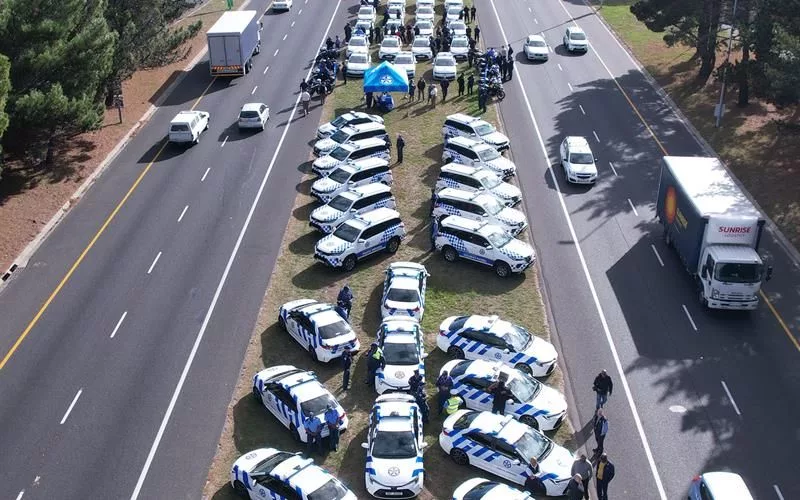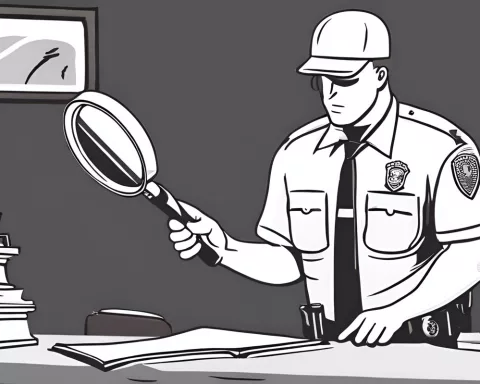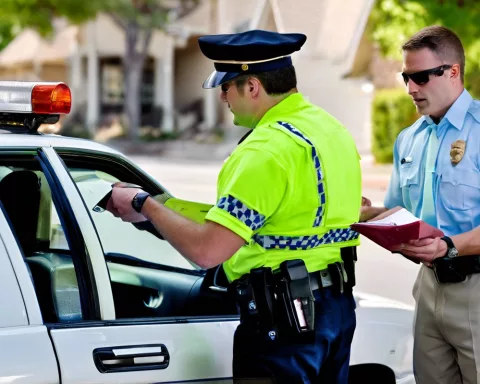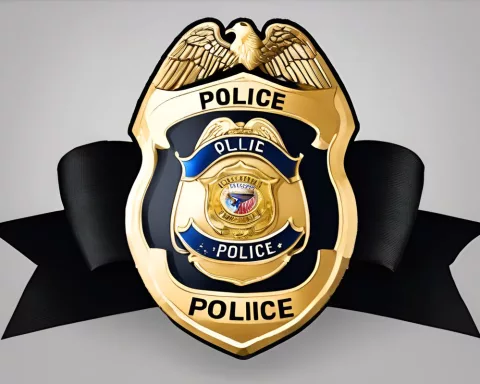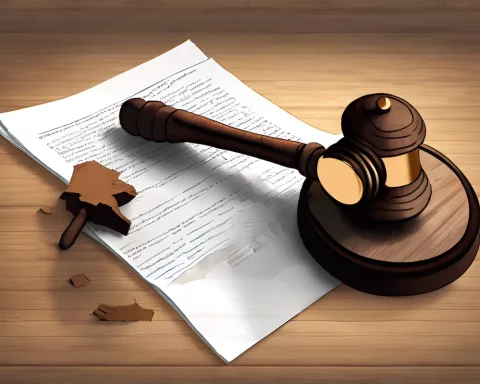Cape Town’s Mayor is proposing a transformation of law enforcement in the city, expanding the jurisdiction of municipal officers to include crime investigation. This change is seen as crucial in supporting the South African Police Service in tackling escalating issues of gang-related activities, gun crime, and drug trafficking. Three central reforms include expanding the definition of criminal investigation, endowing municipal officers with additional Peace Officer powers, and giving metros a more impactful role in local policing policies. The initiative is set to be supported by an investment of R138 million in safety vehicles and additional policing measures.
A proposed transformation of Cape Town’s law enforcement involves expanding the jurisdiction of municipal law enforcement to include crime investigation. The Mayor believes this could immediately support the South African Police Service in their fight against crime, and lead to more successful convictions. Three central reforms include expanding the definition of criminal investigation, endowing municipal officers with additional Peace Officer powers, and giving metros a more impactful role in local policing policies. An investment of R138 million in safety vehicles will further support this initiative.
The Proposed Transformation of Cape Town’s Law Enforcement
Cape Town, a vibrant city, is poised to witness significant modifications in its urban law enforcement. The city’s Mayor, Geordin Hill-Lewis, has openly expressed his support for plans to augment the powers of municipal law enforcement’s investigations. The vehicle for this change is a revision of the South African Police Service (SAPS) Act. The spark for this transformative action comes from Parliament’s Police Portfolio Committee’s end-of-term legacy report.
The Mayor has taken active steps to actualize these changes by penning a letter to the ministers of Police and Justice. This is a call to action for three crucial policing power modifications. These changes, outlined in the publicly accessible letter, aim to improve the effectiveness of the city’s law enforcement.
The essence lies in expanding the jurisdiction of municipal law enforcement to include crime investigation. Mayor Hill-Lewis believes that this seemingly modest change could provide immediate support to SAPS in their continuous struggle against crime. Furthermore, it could lead to more successful convictions.
The Pressing Need and Motivation for Changes
In a digital communication to the City Council, Mayor Hill-Lewis emphasized the imperative need for these changes. He addressed the council from the site of a metro police safety operation on Cape Town’s M5 highway, stressing the urgent requirement to tackle violent crime in the city. He highlighted the escalating issues of gang-related activities, gun crime, and drug trafficking.
The driving force behind this initiative is further underscored by a recent tragedy that struck Cape Town’s Momoti family. The family, already mourning the untimely death of their 16-year-old daughter, Zamawushe, due to gang violence, serves as a poignant illustration of the severe consequences of unchecked crime. The teenager tragically fell victim to a stray bullet in a gang crossfire outside her school in Belgravia.
The Three Central Reforms
At the heart of Mayor Hill-Lewis’s proposal, three crucial reforms are set forth:
- The definition of ‘criminal investigation’ under the SAPS Act should be expanded to include municipal law enforcement. This amendment would enable municipal officers to contribute to the criminal investigative process.
- Municipal officers should be endowed with additional Peace Officer powers to confront grave offences, such as gang-related activities, gun crime, and drug trafficking. This would boost their ability to preserve peace and security within their jurisdiction.
- Metros should be given a more impactful role in formulating local policing policies. This can be realized by integrating metro-specific policies into the National Policing Plan, in line with Section 206 of the Constitution.
Complementing the Initiative with Investment
This initiative by Mayor Hill-Lewis is set to be supported by an investment of R138 million in safety vehicles. This expenditure is anticipated to be South Africa’s most extensive deployment of body and dashcam technology. Additional policing measures will be introduced, including drones, aerial surveillance, radios, CCTV, and the master EPIC system, a sophisticated digital platform designed to streamline all policing operations.
These developments clearly indicate Cape Town’s commitment to bolstering its law enforcement capability. With the suggested amendments, municipal law enforcement would be well-equipped to collaborate with SAPS to address crime, thereby fostering a safer environment for its residents. These reforms reflect the city’s dedication to enforcing justice and ensuring the safety of its citizens.
What is the proposed transformation of Cape Town’s law enforcement?
The proposed transformation involves expanding the jurisdiction of municipal law enforcement to include crime investigation, endowing municipal officers with additional Peace Officer powers, and giving metros a more impactful role in local policing policies.
Why is this transformation necessary?
The transformation is seen as crucial in supporting the South African Police Service in tackling escalating issues of gang-related activities, gun crime, and drug trafficking. There is an urgent need to tackle violent crime in the city, as highlighted by recent tragedies.
What are the three central reforms proposed?
The three central reforms proposed in the transformation include expanding the definition of criminal investigation to include municipal law enforcement, endowing municipal officers with additional Peace Officer powers, and giving metros a more impactful role in local policing policies.
How will the initiative be supported?
The initiative will be supported by an investment of R138 million in safety vehicles, including body and dashcam technology, aerial surveillance, radios, CCTV, and the master EPIC system, a sophisticated digital platform designed to streamline all policing operations.
What is the purpose of expanding the jurisdiction of municipal law enforcement?
Expanding the jurisdiction of municipal law enforcement to include crime investigation would provide immediate support to the South African Police Service in their continuous struggle against crime and lead to more successful convictions.
What is the role of metros in the proposed transformation?
Metros would be given a more impactful role in formulating local policing policies by integrating metro-specific policies into the National Policing Plan, in line with Section 206 of the Constitution.

